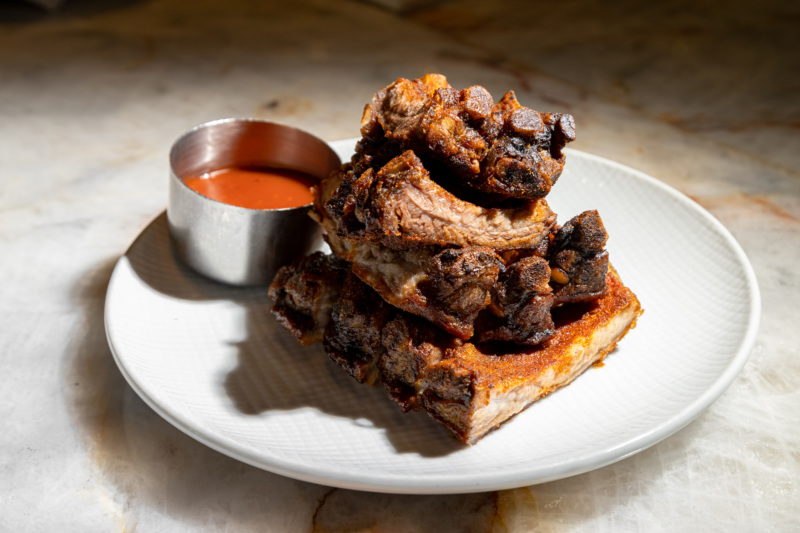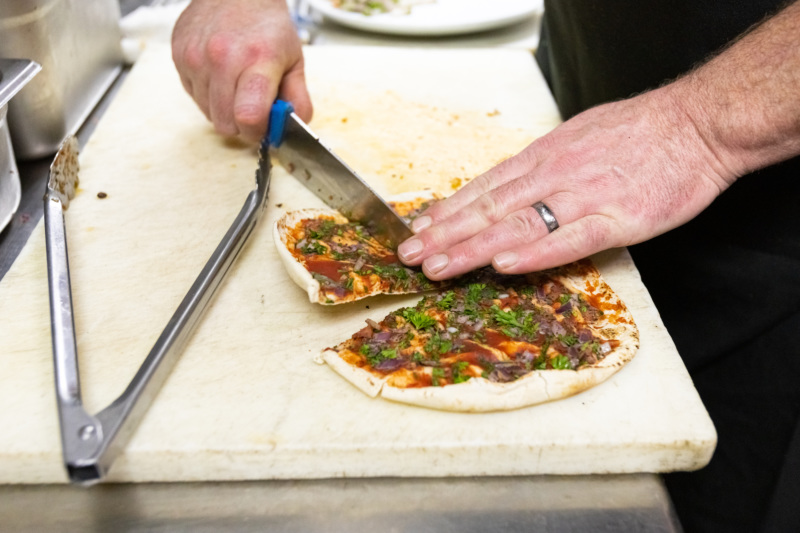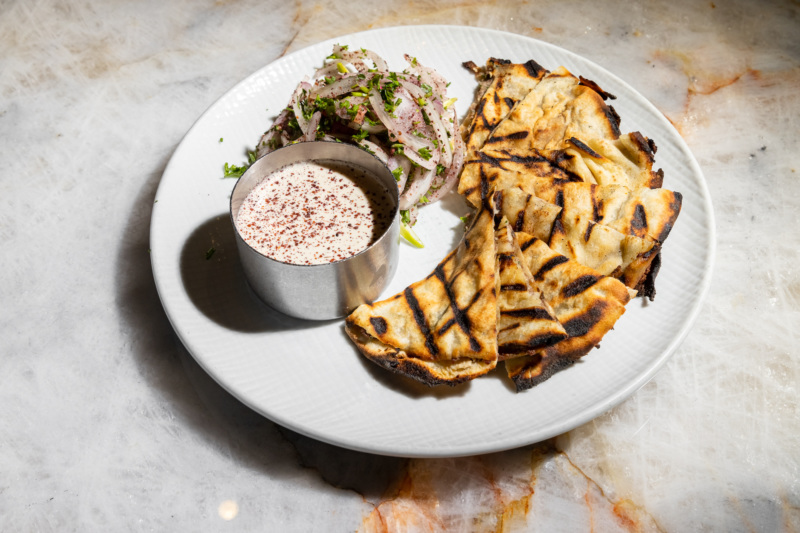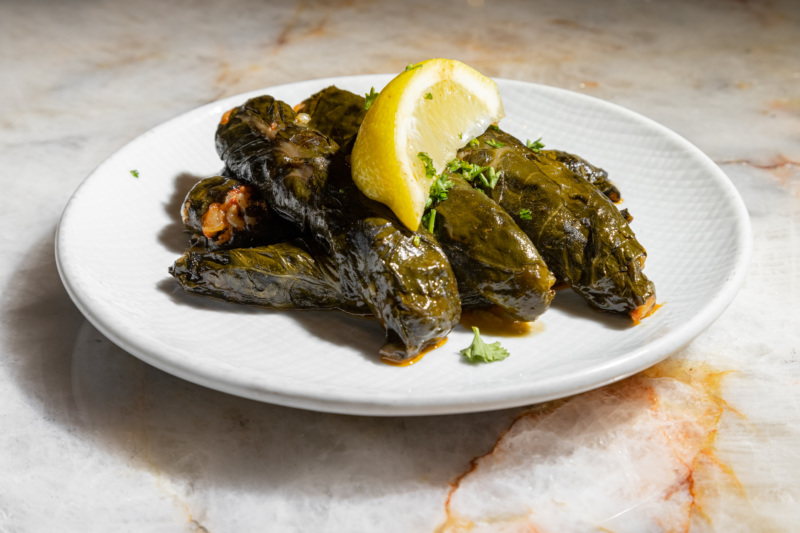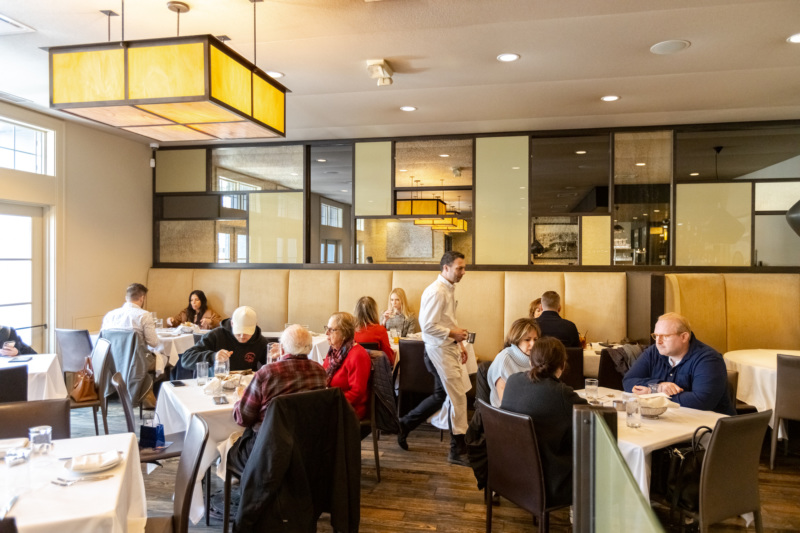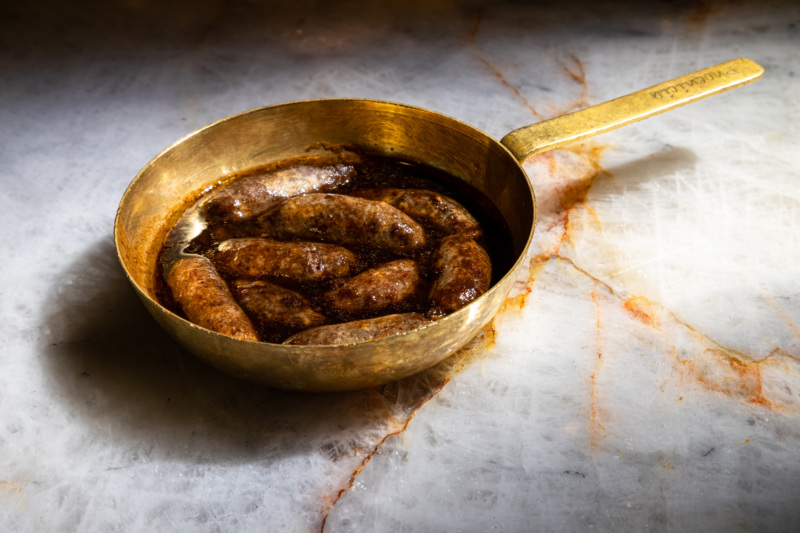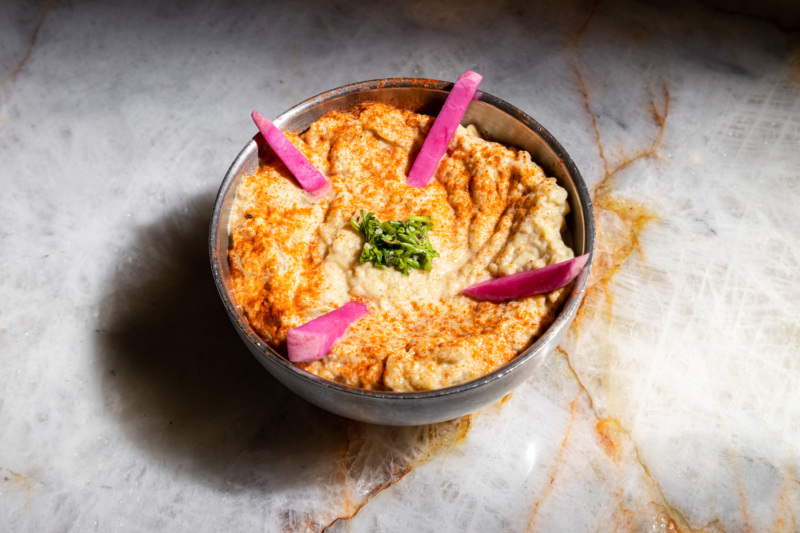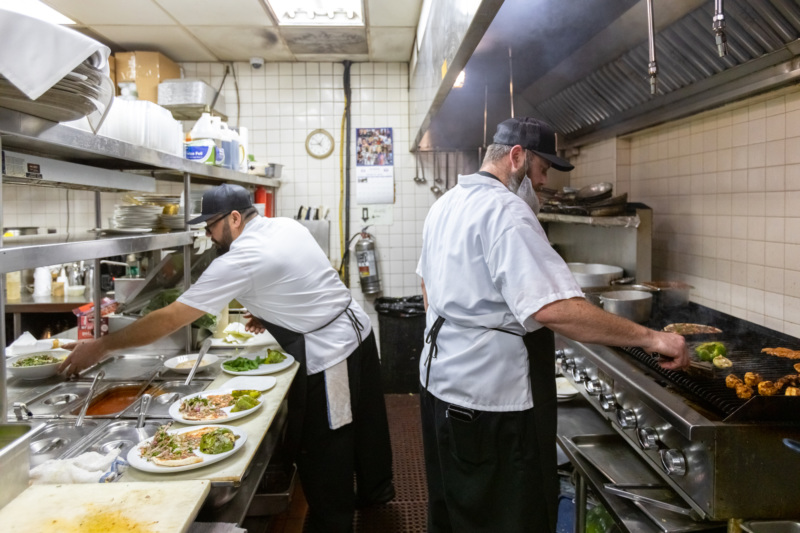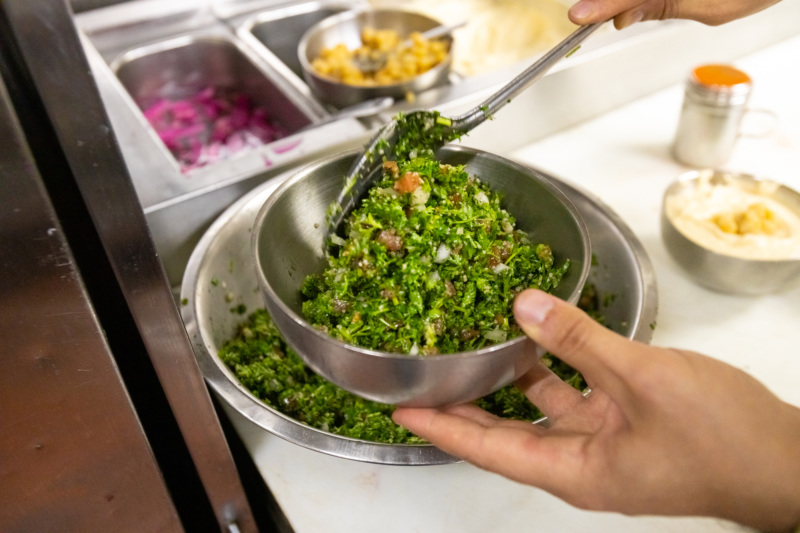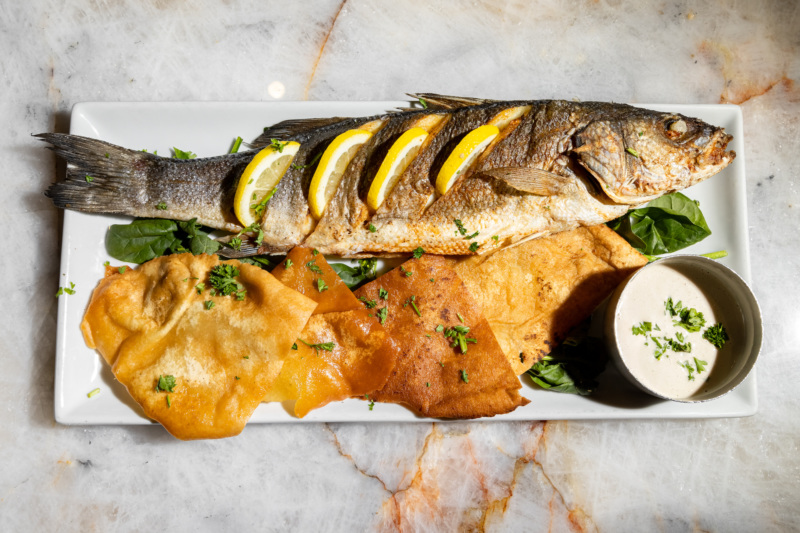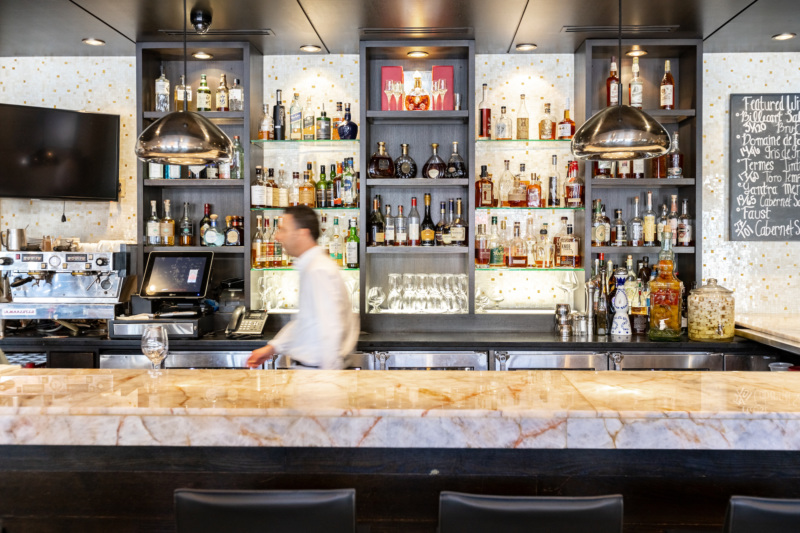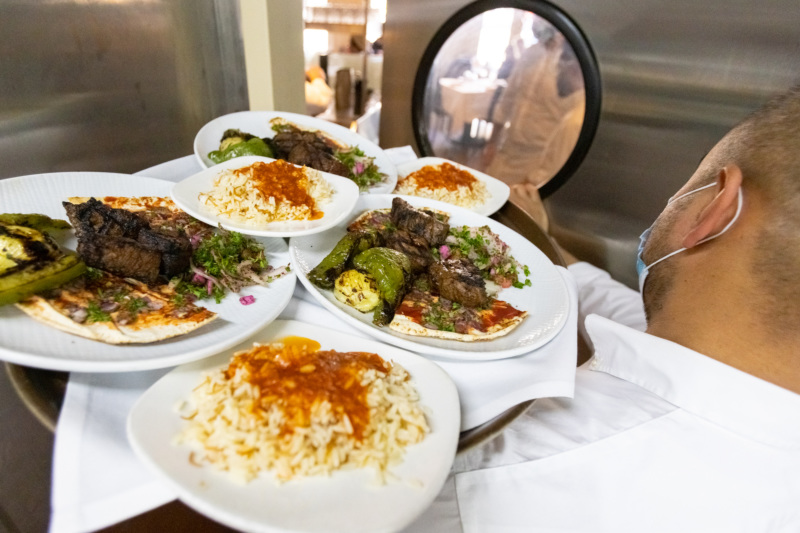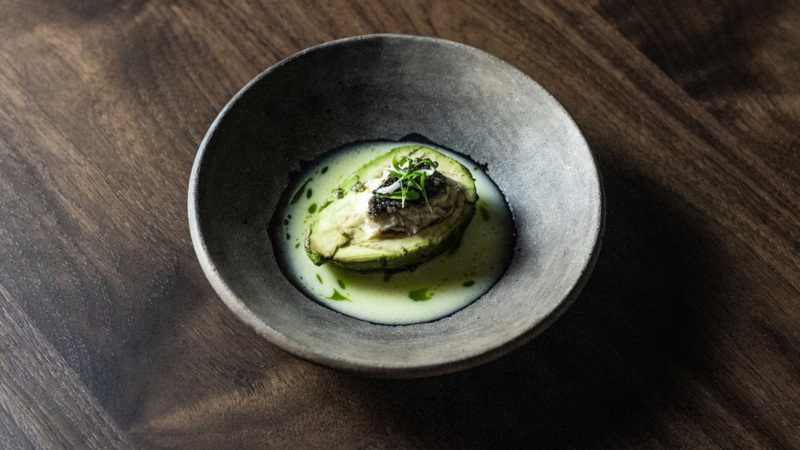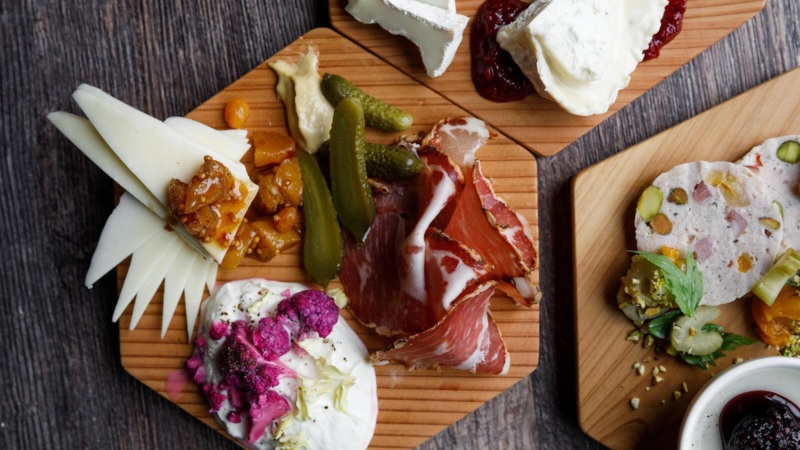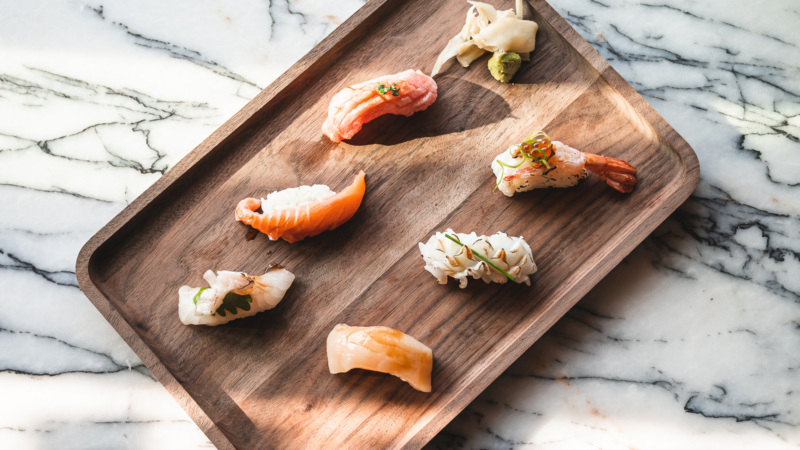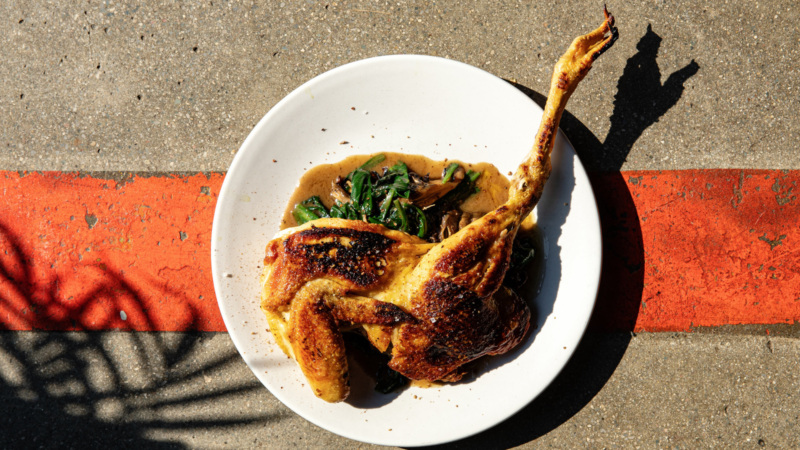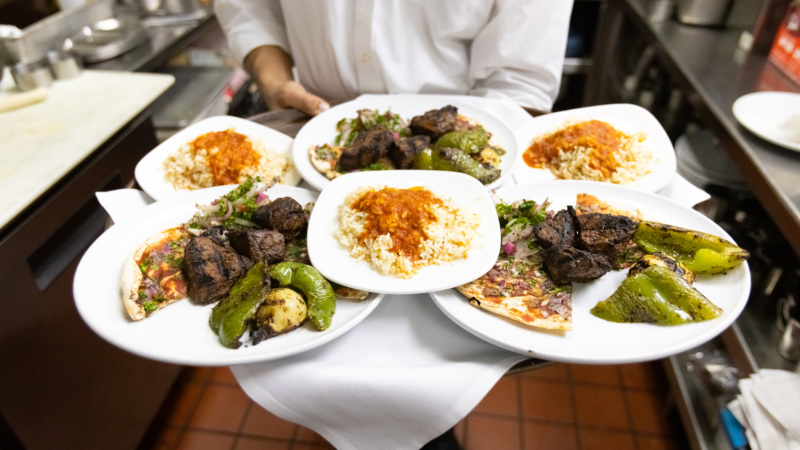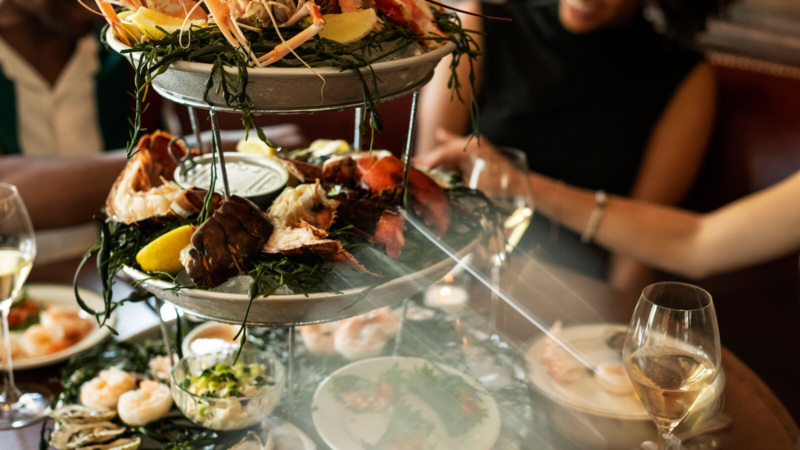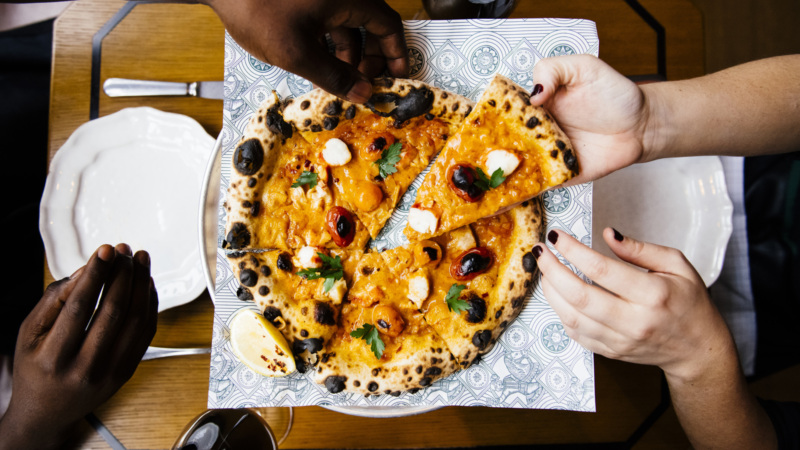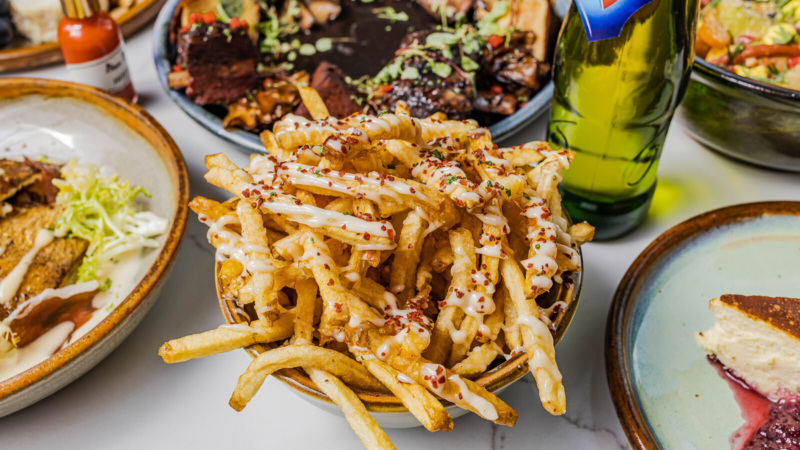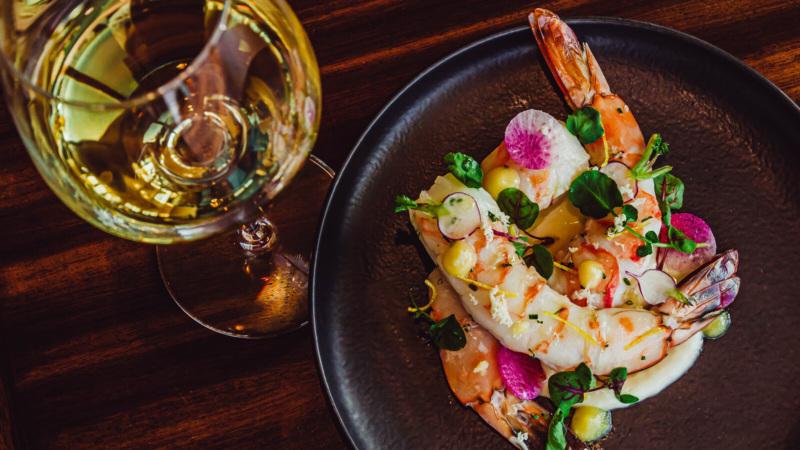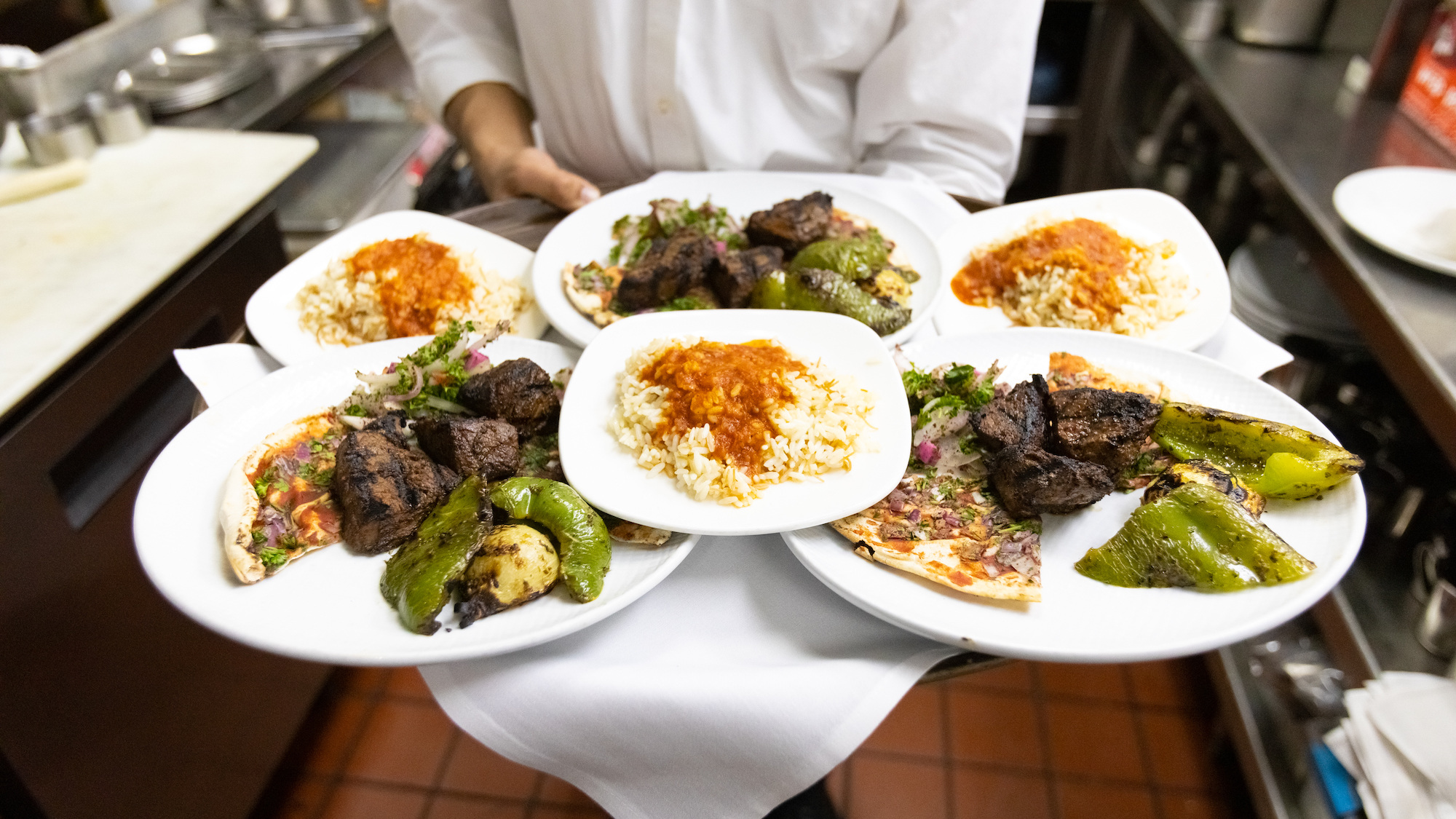
At 50, Phoenicia Remains Detroit’s Icon Of Middle Eastern Cuisine
Time doesn’t always work against us.
Sameer Eid and his Phoenicia restaurant in suburban Detroit are living proof — both are improbably busier and more relevant than ever a full half-century after the Lebanese immigrant with zero hospitality experience bought a dingy diner in a rough part of town on a whim, and began transforming it into the nationally recognized Midwestern torchbearer of Middle Eastern cuisine that it is today.
“I never thought I would go this far with it,” Eid told me recently, reflecting on 50 years in a business that chews up a majority of its operators in a tenth of the time.
“There were no plans. It was a challenge. The money was not my bag. It was about giving people the best of taste.”
If there’s a secret to success and longevity in the famously difficult restaurant industry, it’s the ever-constant presence of someone like Eid himself, whose cosmopolitan upbringing in a well-to-do Greek Orthodox home in southern Lebanon set the bar exceedingly high for the standards he holds himself to.
The spry 82-year-old still rises before the sun three days a week to trek down to the Detroit Produce Terminal, where he closely inspects and selects the raw ingredients that will become best-in-class tabbouleh, smoky baba ganoush and smooth, lightly spiced kibbeh nayeh at Phoenicia later that day.
This dedication is perhaps less impressive in the post farm-to-table era. But for Eid the pre-dawn ritual dates back to 1973, following a spat with a purveyor who tried to sell him inferior product. He’s been hand-selecting his own stuff ever since, bringing a commitment to quality ingredients and exacting standards to a demanding clientele trained over many years (and multiple generations) to never expect anything less.
“If you want to be like every Tom, Dick and Harry, call Sysco and tell them you want steak,” Eid told me the first time we met, his trademark Monopoly Man mustache rising and falling to punctuate every word. “I get my own meat in big blocks. I cut the steaks myself. I know what I’m buying.”
▪️
It all started on a fateful summer day in 1971. As Eid tells it, he walked into his favorite lunch spot during a break from the drapery workroom floor and walked out a restaurateur. The previous owner, who hailed from Eid’s hometown and longed to retire there, had offered him the business for $5,700. He took it on the spot, despite never having run a restaurant before in his life.
For the first decade of its existence, Eid operated his humble Lebanese-American dive out of a small but well-worn space in the Detroit enclave of Highland Park. It was so low key, there wasn’t even a sign — but it attracted an in-the-know whisper network of clientele primed for Arab food when few options existed in the area, or really anywhere in the United States.
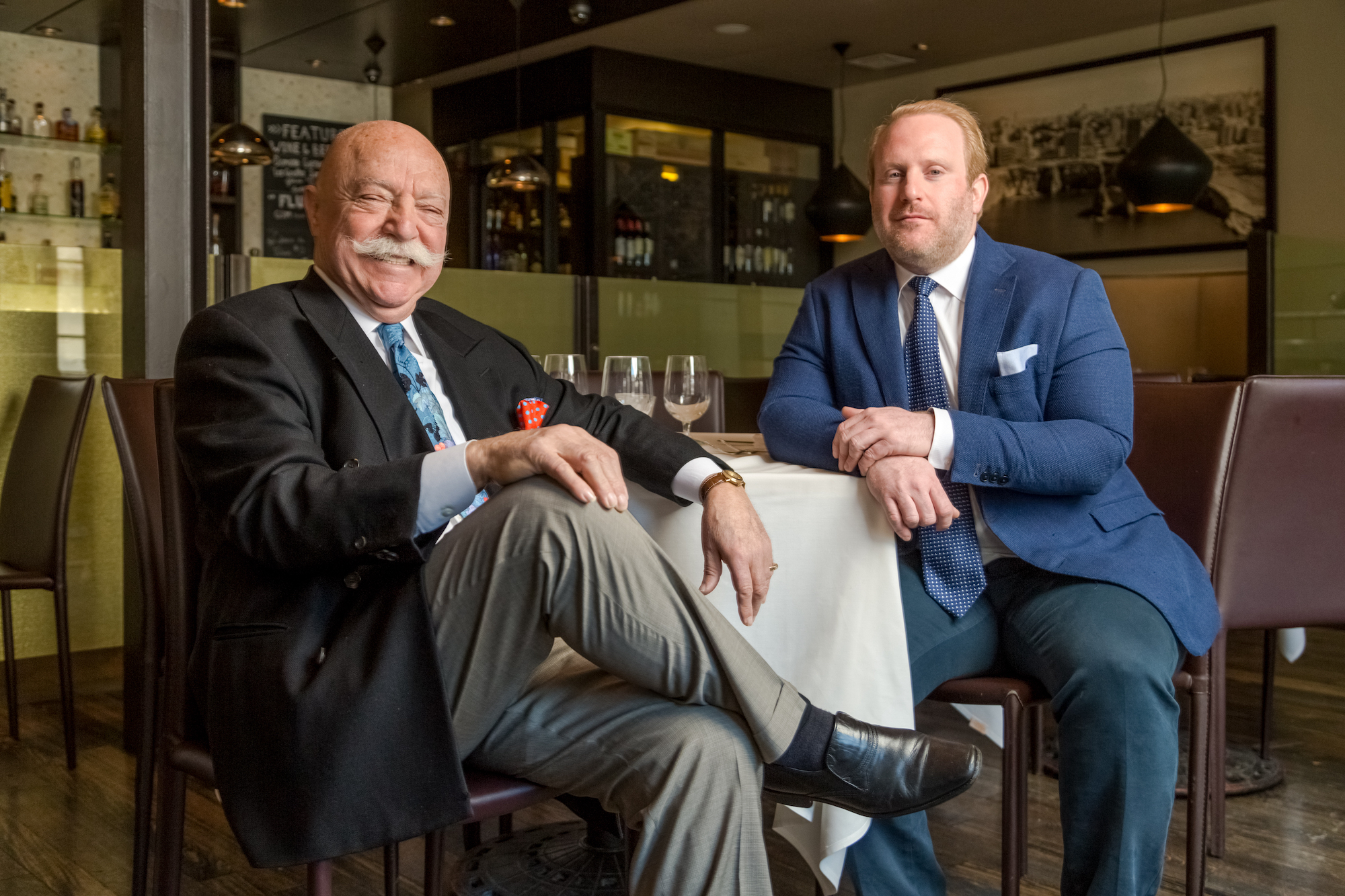
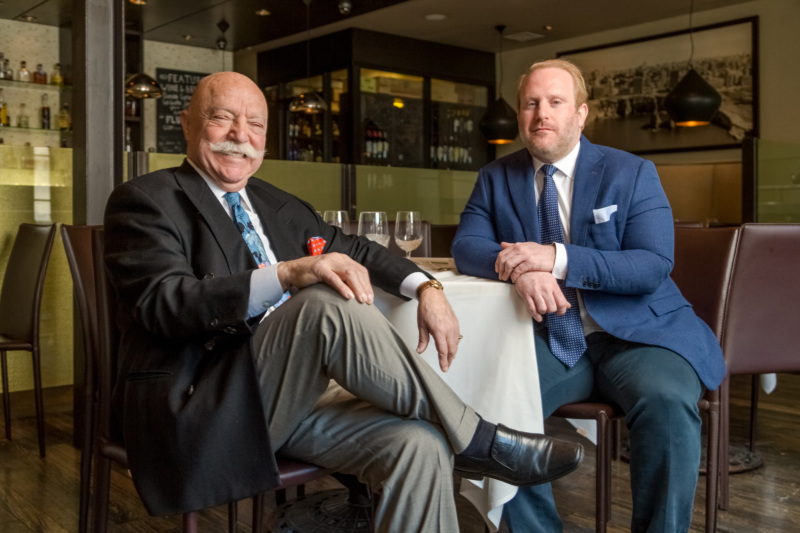
But it didn’t take long for the press to catch on. After a local restaurant critic wrote a favorable review in 1973, sales increased sixfold. A few years later, the Esquire critic Roy Andries de Groot, who was blind, came to town and included Phoenicia in a national magazine piece about America’s best restaurants. Eid often jokes that if de Groot were able to see, he’d have never included the then-divey Phoenicia in such a prestigious list.
“Thank God the seeing-eye dog didn’t tell him what it saw,” Eid says.
Eid’s stories of the original Phoenicia’s Formica countertops, paper napkins, and the rough-and-tumble neighborhood that surrounded it underscore just how much he improved it over the years. In 1982, he moved the restaurant to the well-heeled suburb of Birmingham, buffing up the restaurant and its brand into a white-tablecloth jewel that to this day anchors one of the ritziest shopping districts in Michigan.
Save for a really low period in the late 1990s caused by a failed second location — and made worse by a prolonged employee embezzlement scandal — Phoenicia and Eid have both done well financially. Money, though, was never the prime motivator. He’d taken a 75% pay cut to open the restaurant, leaving behind a lucrative custom drapery business, not to mention his family’s wealth back in Lebanon.
All these years, Eid was driven by a more powerful motivator: pride.
“Seeing the people come in praising my food, seeing the articles — the pleasure of that was overwhelming for me,” he says.
Time has only compounded that positive sensation, as increasingly devoted regulars brought their children, and then their children’s children.
Eid’s own son, Samy, joined the family business some 20 years ago and today runs the day-to-day operations of Phoenicia and a growing roster of sibling restaurants. While Phoenicia remains the classic flagship, the Eid family’s restaurants now also include Forest, a contemporary upscale Italian-focused jewel across town, and Leila, a high-energy modern Lebanese restaurant on Detroit’s bustling Capitol Park downtown. A third concept, Wilder’s Grill, is slated to debut in a new building on the north side of Birmingham some time next year.
▪️
Today, Eid and his son serve at least three generations at Phoenicia, most of whom order without so much as looking at a menu. My own tenure eating at Phoenicia roughly once a month for the last six years hardly makes me a regular by comparison, but since my first taste of Eid’s best-in-class tabbouleh, which I savored as a restaurant critic for one of Detroit’s daily newspapers, I’ve been enchanted by the same spell.
We come for a taste of the plump, sumptuous lamb sausages called makanek, drenched in sticky sweet pomegranate molasses and served out of elegant brass-handled pans. We come for the traditional Lebanese mezze, like creamy hummus and pickled baby eggplant stuffed with walnuts. Many of us come for food that’s not Lebanese at all, like the dry-aged veal chop or the crispy baby-back pork ribs, dry-rubbed in a proprietary spice blend and served as a testament to Eid’s college days in Oklahoma (and the fact he couldn’t find any barbecue up to his snuff in Michigan). “Tradition” at Phoenicia is less defined by the culture of Beirut, and more by the restaurant’s unique roots as a half American, half Lebanese diner and of Eid’s own personal history.
Because mostly we still come for Sameer Eid himself, to be doted on by the jovial host with the iconic mustache and mischievous twinkle in his eye, who will tell you stories from times gone by and remember the smallest details of your previous interactions, making you feel like the most important person in the room.
The transaction goes both ways.
“Genuinely, there’s nothing that makes my dad happier than walking into this restaurant, at night in particular,” Samy Eid says. “He gets to walk in here and see people he’s known his whole life.”
Indeed, nearly every day for 50 years, Sameer Eid has walked into a dining room full of his friends.
And their numbers only continue to grow.
Mark Kurlyandchik is the former restaurant critic for the Detroit Free Press. Currently, he serves as editorial director at Frame, a food incubator that hosts rotating chefs in metro Detroit, and is finishing up his first feature-length documentary about a fine dining culinary school inside a Michigan prison. Follow him on Instagram and Twitter. Follow Resy, too.


